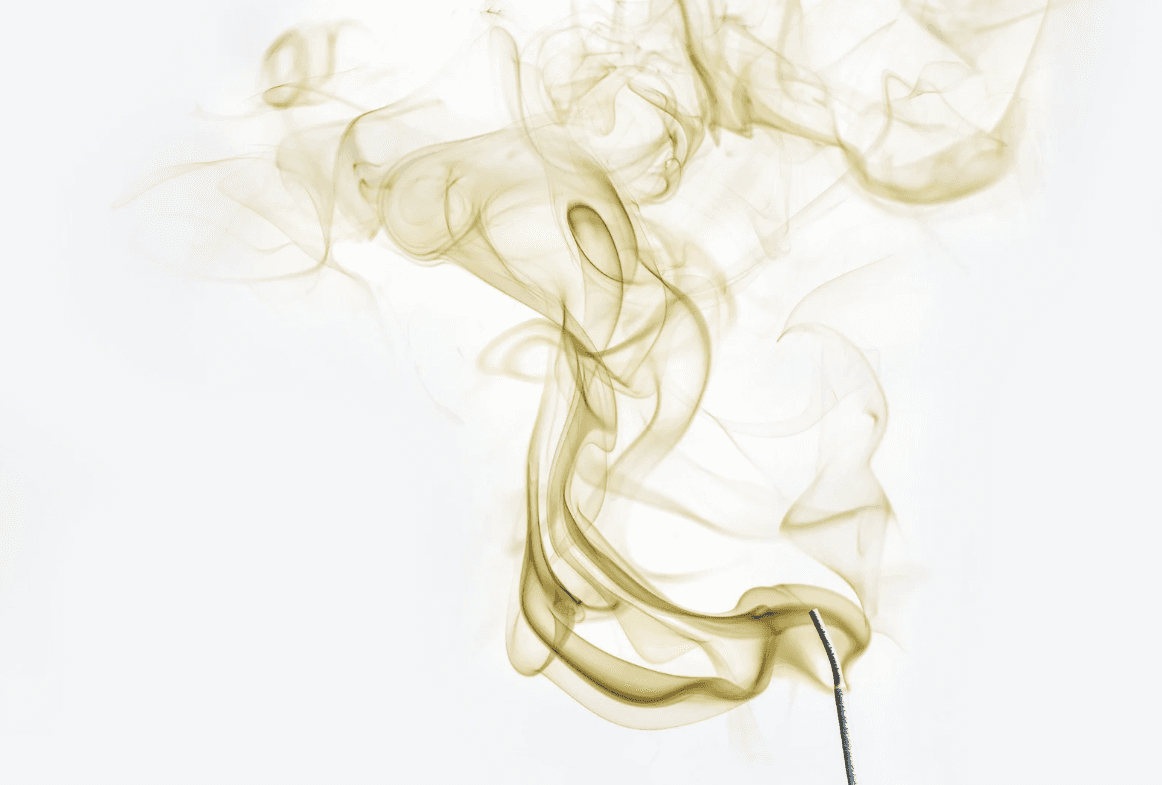Bromhidrosis What You Need to Know
Bromhidrosis, a condition causing body odor, affects confidence and daily life. Explore its causes, symptoms, and treatments.
We’ve all been there—that moment when you catch a whiff of your own body odor and start to wonder if anyone else has noticed it too. While body odor can feel both embarrassing and uncomfortable, it's a completely normal part of being human. In fact, about 2.8% of the population lives with a condition known as bromhidrosis, while an additional 300 million Americans use deodorants or antiperspirants every year to help them smell better.
But just because body odor it’s common, doesn’t mean you have to live with or accept it. Bromhidrosis, specifically, can have a negative effect on your confidence, limit social interactions, and even lead to avoidance of certain activities. The good news? Whether you’re looking for simple lifestyle changes or advanced medical treatment options, there are effective ways to manage bromhidrosis, and there’s no better place to start than with an understanding of what causes this odor in the first place.
What is Bromhidrosis?
Bromhidrosis—also known as osmidrosis or ozochrotia—is a medical condition characterized by unpleasant body odor related to your sweat. It doesn't have one single cause; instead, it can result from a variety of factors, including:
Poor personal hygiene
Diet or specific foods
Certain medications
Inherited metabolic disorders
For some, bromhidrosis may be associated with hyperhidrosis (excessive sweating), especially in areas like the underarms or genital region. While sweat itself actually doesn’t smell at all, bacteria on the skin break it down into compounds that create that familiar foul smell.
How does Bromhidrosis Happen?
To understand how body odor happens, we need to go back to the basics: how sweating happens. Sweating is the process by which the body releases a salty liquid from sweat glands in the skin.
Eccrine Glands
Eccrine glands are found all over the body, including the palms of the hands, soles of the feet, and forehead. They secrete clear, odorless sweat directly onto the skin's surface, helping to regulate your body temperature through evaporation. Since the sweat from eccrine glands is odorless, eccrine bromhidrosis is rare and typically linked to underlying health conditions.
Apocrine Glands
Unlike eccrine glands, your apocrine glands are located in areas with hair follicles - such as the underarms, genital area, and breast regions. These glands produce a thicker, milkier sweat than eccrine glands, and when this sweat mixes with bacteria on the skin, it produces the abnormal body odor strongly associated with apocrine bromhidrosis. Interestingly, these glands become active during puberty, which is why younger children typically don't have body odor.
What Causes Bromhidrosis
Our skin is naturally covered in bacteria; in fact, it’s actually healthy for the skin to be covered in bacteria. Body odor occurs when bacteria on your skin mix with the water, salt, and fat that’s contained in sweat. Different factors can have an impact on how your body odor smells, like the foods you eat, your hormones, and even the medication you’re currently on. If you have hyperhidrosis—a condition where you sweat excessively—you may be more susceptible to body odor because of how much you sweat.
A range of factors can contribute to bromhidrosis body odor, including:
Exercise
Stress and anxiety
Diet
Genetics (Bromhidrosis is also more common in men, because they have more hair (so they have more apocrine glands)
Certain medical conditions and diseases can be also associated with changes in a person’s normal body odor, including:
Hyperhidrosis
Diabetes
Gout
Menopause
Overactive thyroid
Liver disease
Kidney disease
Infectious diseases
Symptoms of Bromhidrosis
The main symptom of bromhidrosis is a foul smell or persistent, unpleasant body odor. Interestingly, the smell can vary from person to person, but is usually described as something rotting, sour, or another foul odor.
The smell may:
Stain and stick to your clothes even after you take them off and wash them
Be strongest in areas like the underarms (high concentration of apocrine glands), genital area and feet
Be accompanied by skin irritation, redness, or rashes in affected areas
Beyond the physical symptoms, bromhidrosis can also have a negative impact on quality of life and a negative effect on self-esteem. It’s not unusual for those living with bromhidrosis to fear social interactions and limit their exposure to certain activities—like group exercise, for example—due to embarrassment about their body odor.
Diagnosis of Bromhidrosis
Diagnosing bromhidrosis is relatively straightforward. Your doctor or healthcare provider can often identify the problem based on your scent. Since the odor may not always be present, your doctor may ask to see you after you’ve ran on the treadmill, for example.
To look for underlying causes of your body odor, like diabetes or liver and kidney disease, it’s important that your doctor review your medical history and order additional lab tests, as necessary.
Bromhidrosis Treatments: What Works?
Medical treatment options for bromhidrosis depend on the cause and severity of your excessive body odor, ranging from personal hygiene to surgery. Let’s take a look at the different bromhidrosis management and treatment options available.
Prescription Medications
Certain prescription medications, like glycopyrrolate and oxybutynin, can help reduce sweating, and while effective, they need to be used under clinical guidance to avoid interfering with your body's natural cooling system.
Botulinum Toxin (Botox)
Botox injections work by blocking nerve signals to the sweat glands, reducing sweat production in targeted areas. Botox will wear off after a while, typically 4-6 months, so if you go this route, regular injections my be required.
Liposuction
Chances are you’ve heard about liposuction before—a surgical procedure that removes fat from specific areas of the body. However, when the procedure is done for bromhidrosis, a very small tube called a cannula is inserted under the skin, grazing along the inside of the skin and removing apocrine sweat glands as it goes. Studies have shown that liposuction is fairly effective at eliminating body odor, but it’s important to talk with a healthcare provider to understand both the risks and if you’re suited to the treatment.
Surgical Treatments
Endoscopic thoracic sympathectomy, or ETS, is a surgery that treats conditions caused by overactive sweat glands. During ETS, a surgeon will make a few small incisions in the chest and use a small camera and other tools to cut, clip, or destroy the nerves that control sweating.
Electrosurgery is another less invasive treatment to remove the sweat glands that can contribute to bromhidrosis. Over a period of several treatments, a doctor uses tiny insulated needles to remove sweat glands.
Lastly, there is a more traditional type of operation that a surgeon could do for the surgical removal of your sweat glands. Skin resection can be performed by a doctor or dermatologist, who will make an incision in the skin to see clearly where the sweat glands are located before surgically removing the sweat glands themselves. It does leave some scarring on the surface of the skin, and is usually used to treat people who also have hidradenitis, a chronic skin condition that leaves you with lumps in the armpits and elsewhere in the body.
Natural Remedies
You can chat with your doctor about natural remedies that may work, too.
Lemon juice: Citric acid is found in lemon juice, which kills bacteria. To dilute the juice, mix it with water before applying it to your underarms or another affected area.
Baking soda: You can try making a paste with baking soda and water, apply it to the affected area(s), and let it dry. Baking soda has been known to balance the acid on your skin and reduce odor.
Apple cider vinegar: The acid in vinegar helps kill bacteria as well. Try mixing apple cider vinegar with water and placing in a spray bottle to spray on affected areas.
Green tea: Green tea bags soaked in warm water then applied to the smelly area may help to block pores and reduce sweating.
Tips for Daily Life
Some basic personal hygiene strategies can go a long way when it comes to reducing and managing one's unpleasant body odor.
Take a bath or shower every day in order to keep your skin clean, using antibacterial soap. When washing, focus on the affected area—most likely your underarms, genital region or feet. This helps to remove some of the bacteria on your skin that creates excessive body odor.
Keep your armpits closely shaven. This allows sweat to evaporate quickly on the skin, which means it has less time to interact with bacteria on the skin.
Wash your clothes regularly and wear clean clothes as much as possible.
Wear cotton clothing that fits loosely. Light and moisture-wicking fabrics—especially in underwear and bras—can allow your skin to breathe.
Wear a topical antiperspirant, which reduces sweating by blocking sweat glands and pores on the skin. These are available over-the-counter and come in prescription form as well.
Watch what you eat. Eating sulfur-rich foods like onions, garlic, and cabbage, or hot and spicy food that affects how much you sweat, can result in a strong body odor. Removing these foods from your diet may help.
Find ways to relieve stress. Whether that’s yoga or meditation, lifestyle remedies to reduce stress can help, as stress can cause your apocrine glands to activate.
Key Takeaways
So now you know—bromhidrosis may be an uncomfortable condition, but it's manageable. It can have serious negative effects on one's mental health and quality life, so whether you start with personal hygiene improvements or explore advanced treatments like Botox or surgical removal of sweat glands, there are solutions for every level of severity. And remember, it's not your sweat that smells, but rather when the bacteria on your skin interacts with the sweat, an abnormal body odor can form.
If you’re ready to take control of your body odor, SweatRx offers personalized care plans tailored to your needs. From connecting with dermatologists to delivering effective medications to your door, SweatRx is here to help you feel your best.



